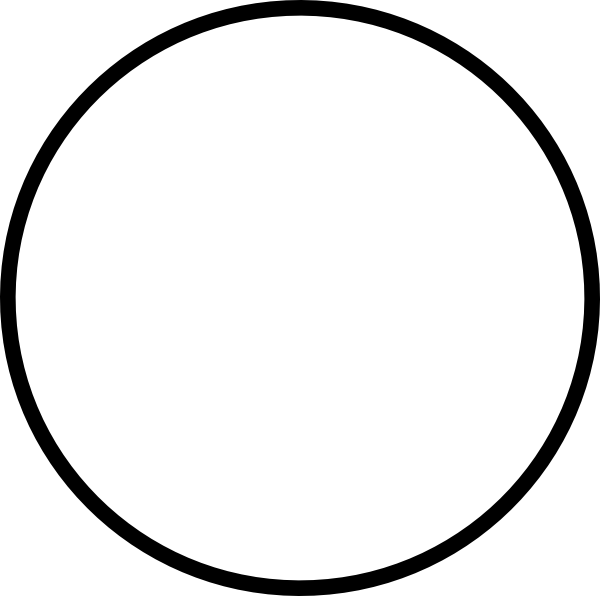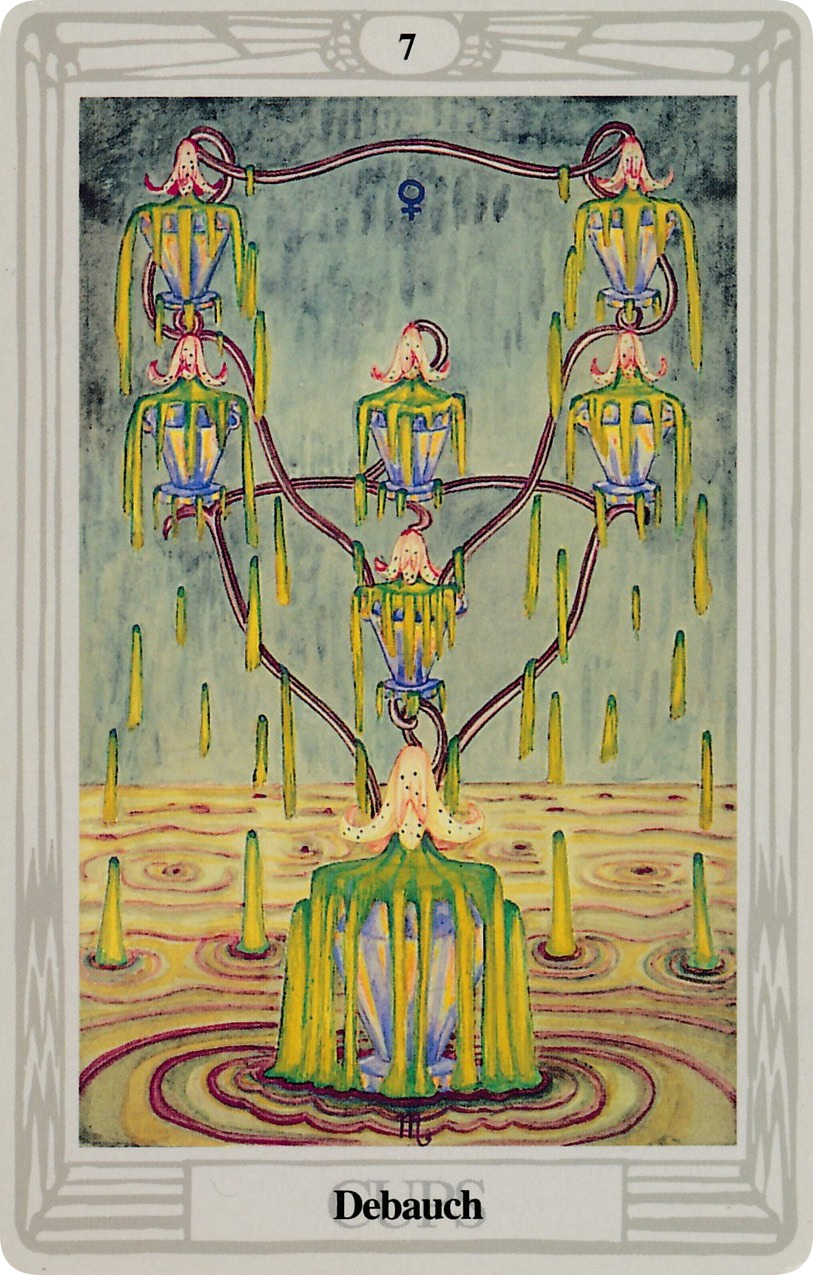The Seven of Cups
The Lord of Illusionary Success;
Debauch
The seven cups are arranged as two descending triangles
above a point: a hand, as usual, holds lotus stems which arise
from the central lower cup. The hand is above this cup and
below the middle one. With the exception of the central lower
cup, each is overhung by a lotus flower, but no water falls from
these into any of the cups, which are all quite empty. Above
and below are the symbols of the Decanate Venus and Scorpio.
Possible victory, but neutralized by the supineness of the person: illusionary success, deception in the moment of apparent victory. Lying, error, promises unfulfilled. Drunkenness, wrath, vanity. Lust, fornication, violence against women, selfish dissipation, deception in love and friendship. Often success gained, but not followed up. Modified as usual by dignity.
Netzach ofה (Lying, promises unfulfilled; illusion,
deception, error; slight success at outset, not retained).
Herein the Angelsמלהאל and ההואה rule.
• • •Possible victory, but neutralized by the supineness of the person: illusionary success, deception in the moment of apparent victory. Lying, error, promises unfulfilled. Drunkenness, wrath, vanity. Lust, fornication, violence against women, selfish dissipation, deception in love and friendship. Often success gained, but not followed up. Modified as usual by dignity.
Netzach of
Herein the Angels
“This card refers to the Seven, Netzach, in the suit of Water. Here recurs the invariable weakness arising from lack of balance; also, the card is governed by Venus in Scorpio. Her dignity is not good in this Sign; one is reminded that Venus is the planet of Copper, “external splendour and internal corruption”. The Lotuses have become poisonous, looking like tiger-lilies; and, instead of water, green slime issues from them and overflows, making the Sea a malarious morass. Venus redoubles the influence of the number Seven.
The cups are iridescent, carrying out the same idea.
They are arranged as two descending triangles interlaced above the lowest cup, which is very much larger than the rest.
This card is almost the “evil and averse” image of the Six; it is a wholesome reminder of the fatal ease with which a Sacrament may be profaned and prostituted.
Lose direct touch with Kether, the Highest; diverge never so little from the delicate balance of the Middle Pillar; at once the holiest mysteries of Nature become the obscene and shameful secrets of a guilty conscience.”
— Crowley, The Book of Thoth

